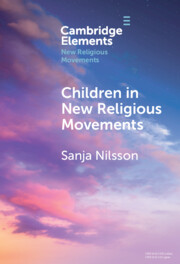The systematic proselytisation of Catholic children institutionalised under the New Poor Law of 1834 was felt by the Catholic community as a very serious grievance. The legislation was framed so as to make the ministrations of the state church an integral part of the workhouse regime, while providing safeguards for the religious rights of non-Anglicans, both adults and children, through a conscience clause which however was not envisaged as applicable to children perceived as having no meaningful family connections. Loose wording allowed locally elected poor law bodies to frustrate the intentions of Parliament, and nullify all efforts of relatives and others to secure appropriate religious upbringing for Catholic children. The problem was particularly acute in the London area. Earlier lobbying initiatives came to nothing, but a fresh campaign begun in 1859, waged with the participation of Catholics at all levels of society, and persisting in the face of repeated setbacks, succeeded in 1868 in bringing about a change in the law, whereby procedures were established to enable the transfer of all poor law children of proven Catholic background to voluntary institutions under Catholic management, with funding for their maintenance paid from the poor rates.
